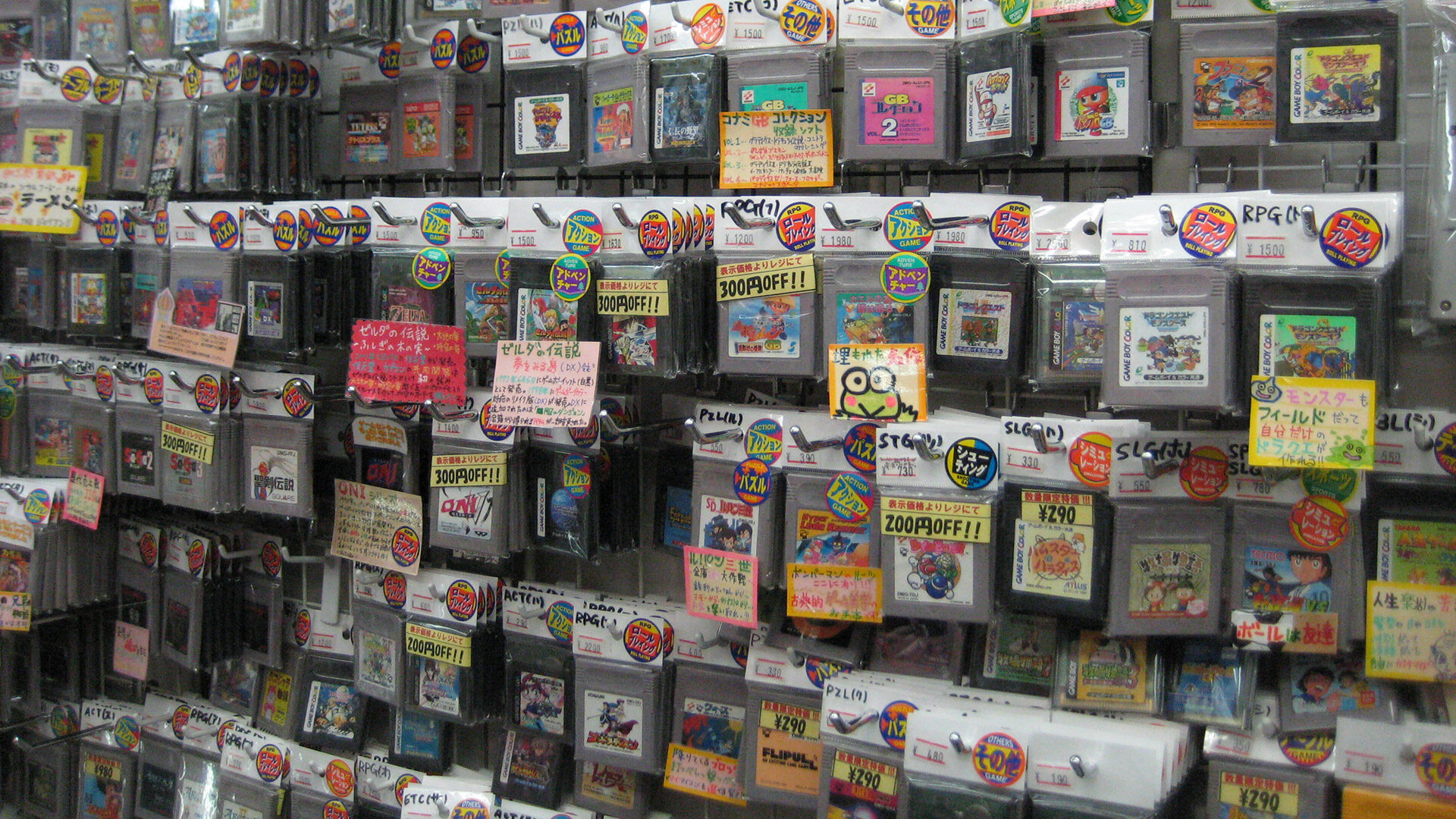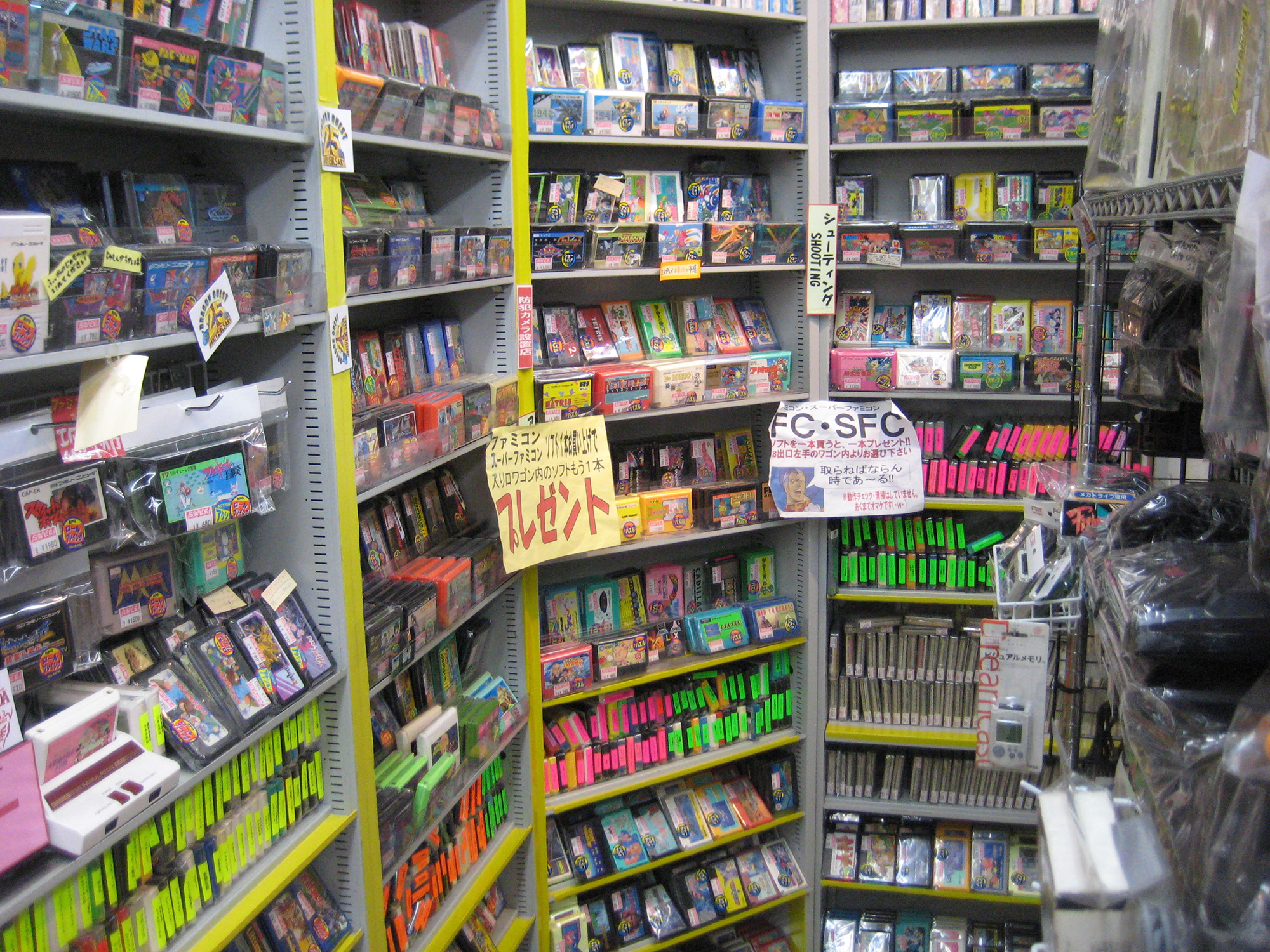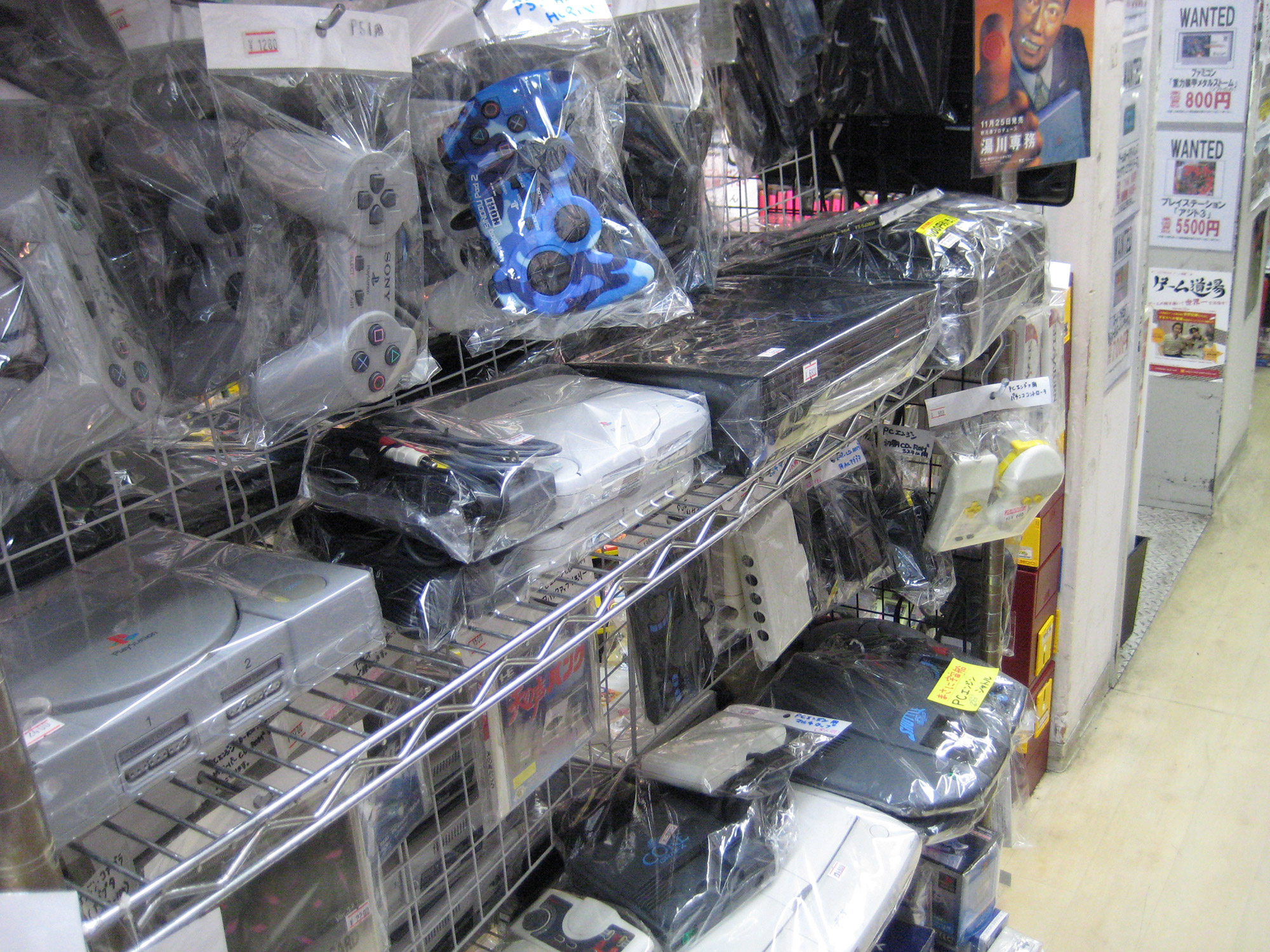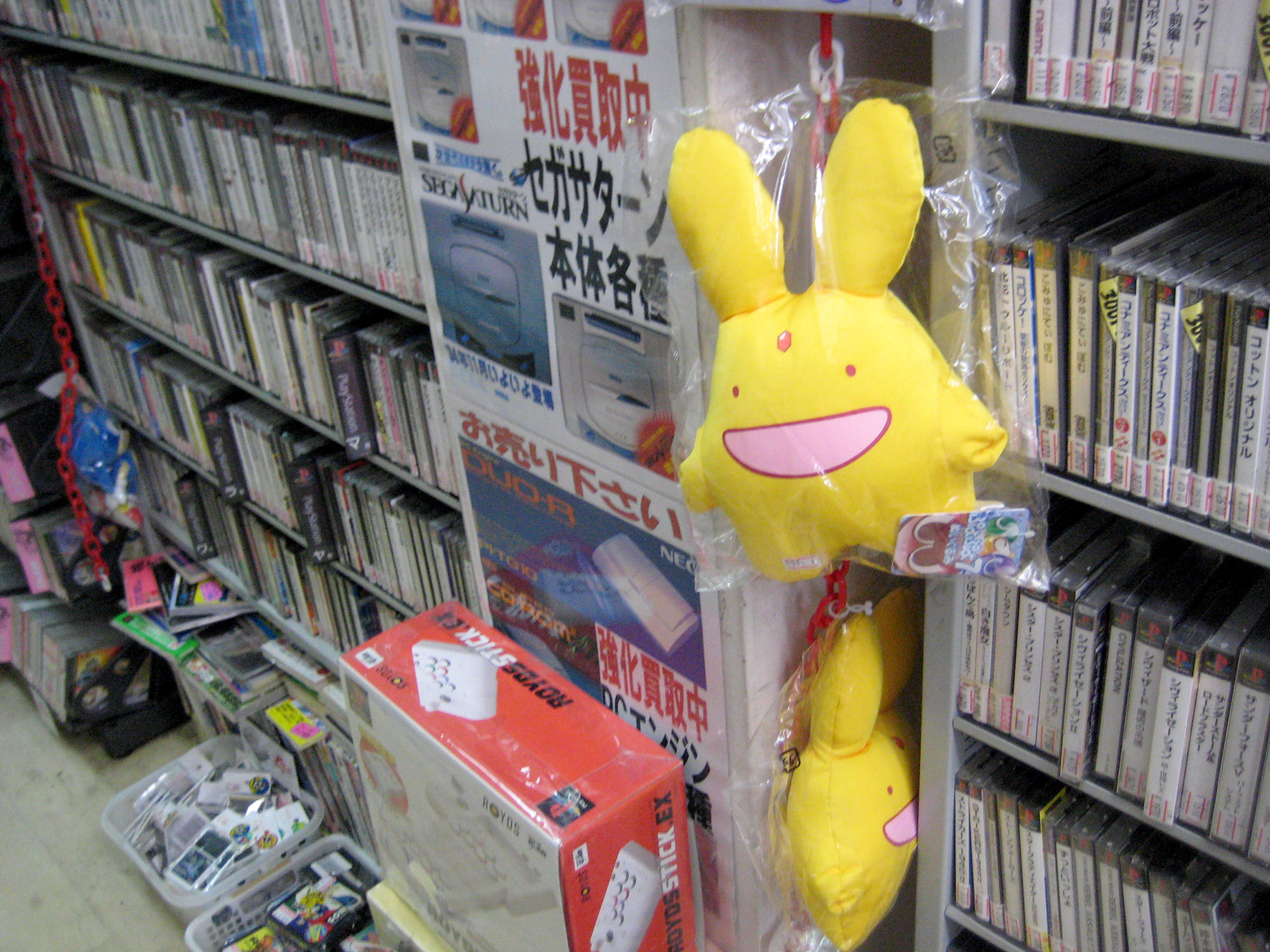Japan vs. Digital Distribution
Coming to Japan makes me hate my position on digital distribution.
That position? I love it, and have argued for and supported the idea of digital distribution for a long time now. Not just the concept of getting our games digitally, mind you—the concept of only getting our games that way.
That isn’t to say that I’m some cruel monster who wants to break into your home at night in order to steal away all of your cartridges and optical discs or anything like that. I am a lover of choice, and the ability of all of us to have that choice. Myself, however, I’ve been switching more and more to the digital side of the media revolution, and boy has it been sweet. Music? Sure, I still own CDs, but they sit in a box in my closet, their only usefulness to me being as back-up should my digital rips meet some unfortunate fate. (And really, I can’t even tell you the last time I purchased a CD.) Movies? I used to shudder in annoyance if my DVDs were anything less than presented on a shelf in their full, pristine original case. Now? The DVDs are stacked one on top of the other on CD spindled, hidden away as I—again—make use of digital versions of those movies streamed to my PS3.
Then, of course, we have video games. Ahh, what a love/hate relationship that one is. I love games, I hate the ownership of their physical manifestations. Okay, so that isn’t fair—I don’t hate it. I grew up as somebody who loved collections, and for years and years I proudly displayed (or kept tucked away yet easily accessible) collections for a wide variety of systems. At some point, however, my collections just became too much. The things I owned, as the saying goes, ended up owning me. Every time I moved, every time I re-decorated, every time I simply wanted a little extra space, there they were, so wonderful and awesome and full of gaming history yet just so there.
Not being much of a PC gamer, I never had much experience with Steam, nor with the “fantabulous digital experience” it supposedly promises. My digital tipping point, instead, came with the PSP—an interesting situation given that its rival, the Nintendo DS, is the one system I now allow myself to have a hardcore collection for.
With more and more PSP games coming out both as a standard physical UMD release and a digital version via PlayStation Network, it was the perfect opportunity to get my feet wet in the digital pool. It felt strange at first; after so many years of buying physical versions of games, spending the same money to get a digital file that’s essentially copied from one place to another didn’t seem right. With that tangible item no longer there to be held in my hands, it was sometimes a little hard to fully appreciate where my money had just gone.
Once I had a few PSP games in that digital form, however, things started to make more sense. With back-up copies safely tucked away on my PS3’s hard drive, I could transfer over as many PSP games as my Memory Stick of choice could carry, giving me a library of titles to choose from and enjoy while no longer needing to also carry an assortment of little disc thingies. It was to gaming as my iPod was to music, and the convenience outweighed any strange internal need to see a case sitting on a shelf collecting dust.
Yet, there I was today in Akihabara, browsing the retro game stores and their wares. I explored shelf upon shelf of cartridges and discs—all belonging to some particular platform now past its prime—and the feeling I felt was… comfort. Indeed, there was a comfort in it all. The games were real, they were tangible, they had existed years ago and they still existed now. Their usefulness had been used up by one gamer, but soon they might be purchased by another, providing that new owner with just as much enjoyment as they had provided to their last. Going into a GameStop back in my home country, it’s hard to look past the store and really see the games. Here, their history and legacy is fully on display, and as somebody who loved video gaming, it’s hard not to be swept up in it all. These stores aren’t selling you a product that will save you $5 versus buying the same game brand new—these stores are selling you the keys to worlds you haven’t explored yet, or tickets to return to the ones you long to visit again.
Being there in Akihabara, visiting those stores, existing among all of those old games and accessories and consoles, it didn’t take long for a thought to crop up: My love for digital distribution means the end to all of this. Not today, not tomorrow, maybe not even a few years from now. At some point with digital distribution, however, gaming’s past ceases to exist in any real way, and the legacy of a particular title or series is reduced to a file sitting on a hard drive somewhere. I can’t go to a store and explore files. I can’t come across files I’ve never heard of before, pick them up, and try to imagine what they might be like from the screenshots on the back of their package. When more and more of our must-have games go digital only, stores like the ones I visited today become a relic of the past, their games and platforms potentially becoming more and more niche as those who grew up with them grow old and move on.
Looking to my right, I can see the stack of seven DS games I purchased today. Sure, they’re a little bulky, and yes, I know that when I get home, my already-overflowing DS shelf will have absolutely no room for them. Had I just booted up my DSi, clicked on the Nintendo Shop, and downloaded those same games (if they were available), it would have been quicker, easier, and more convenient. It also wouldn’t have been nearly as much fun, not felt as rewarding when I found each particular game for a great price.
So yes, I love digital distribution, and all of the positives it can bring us. At the same time, that love makes me feel like a traitor to something I love even more: Video games.



